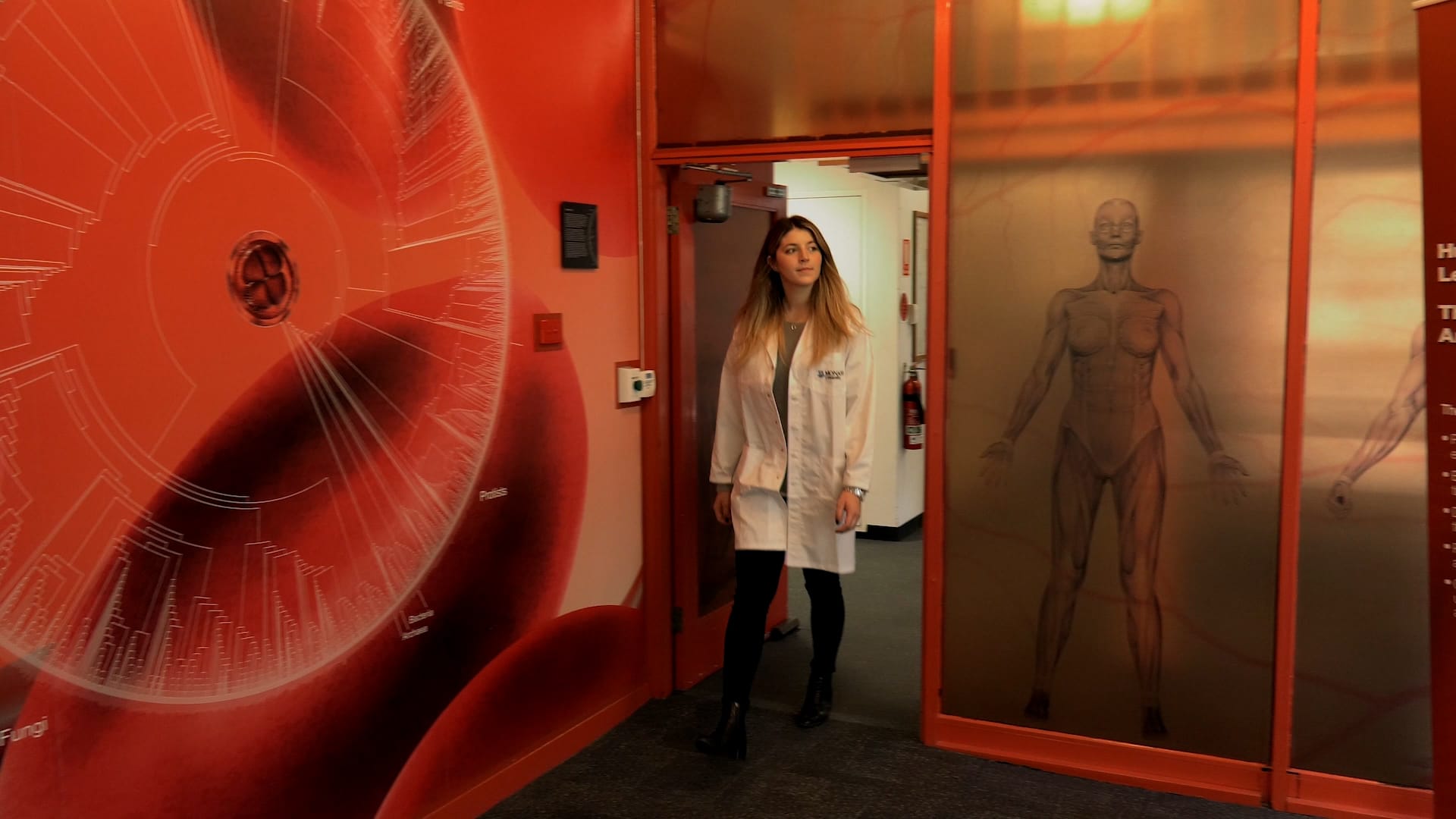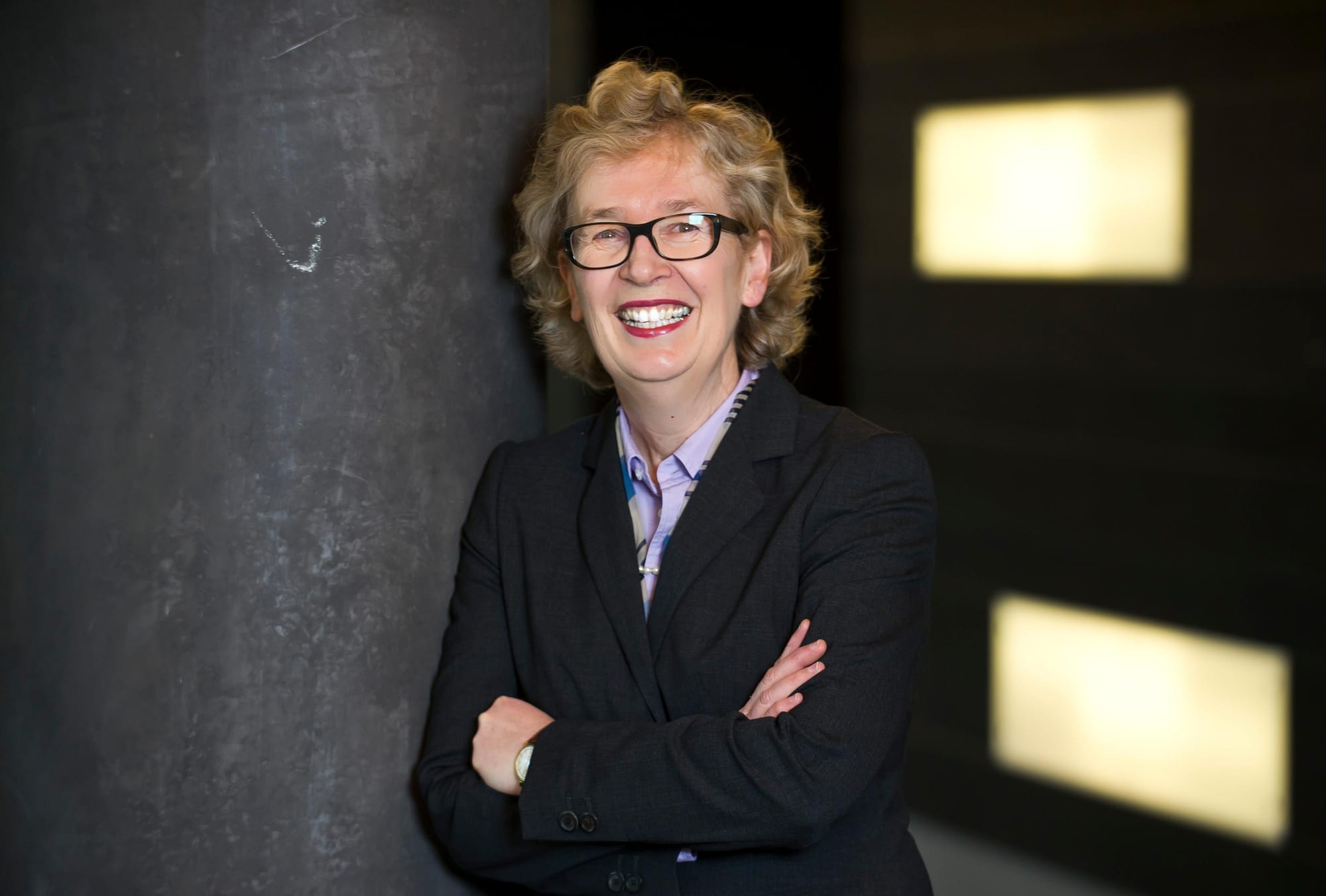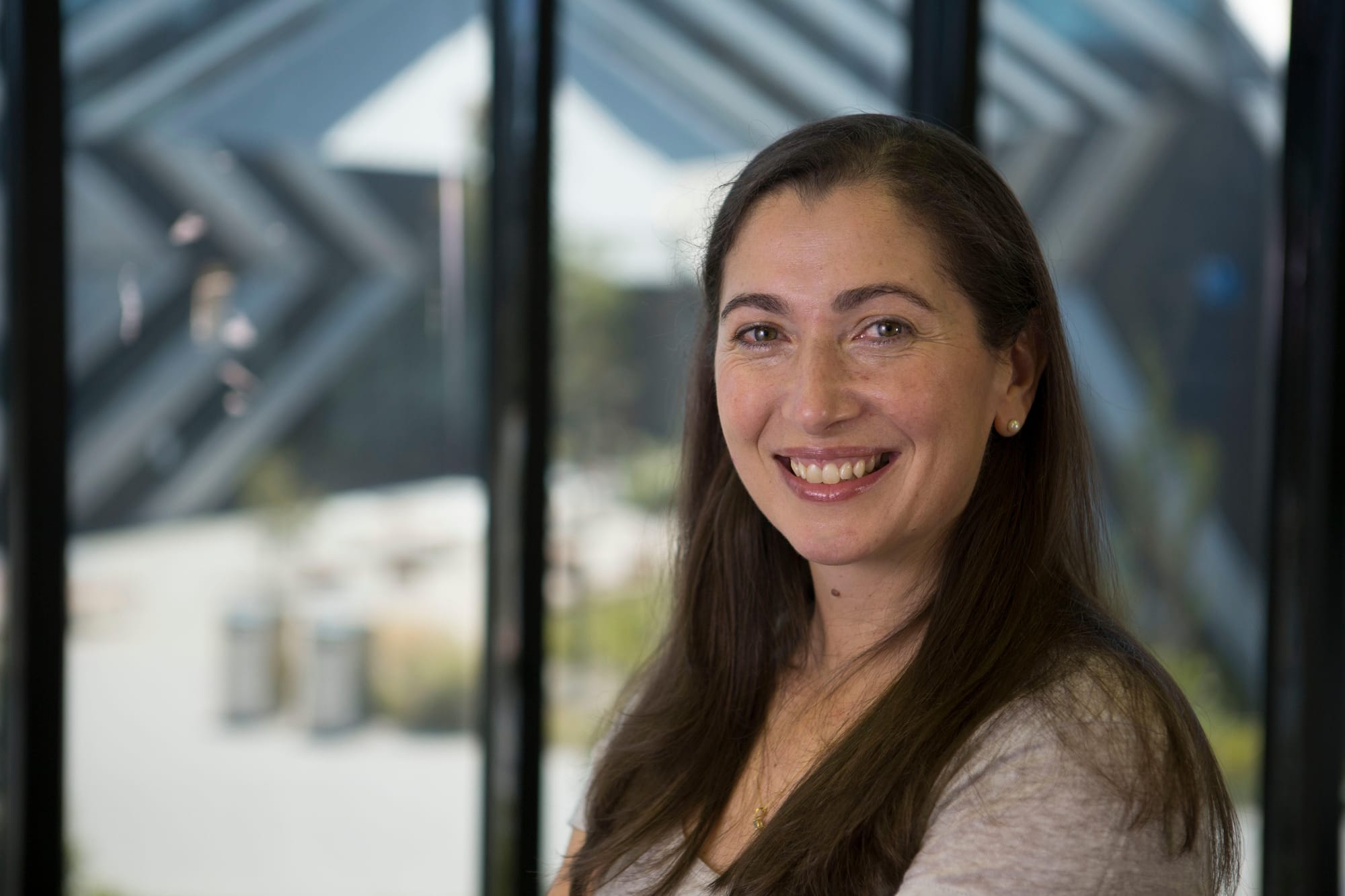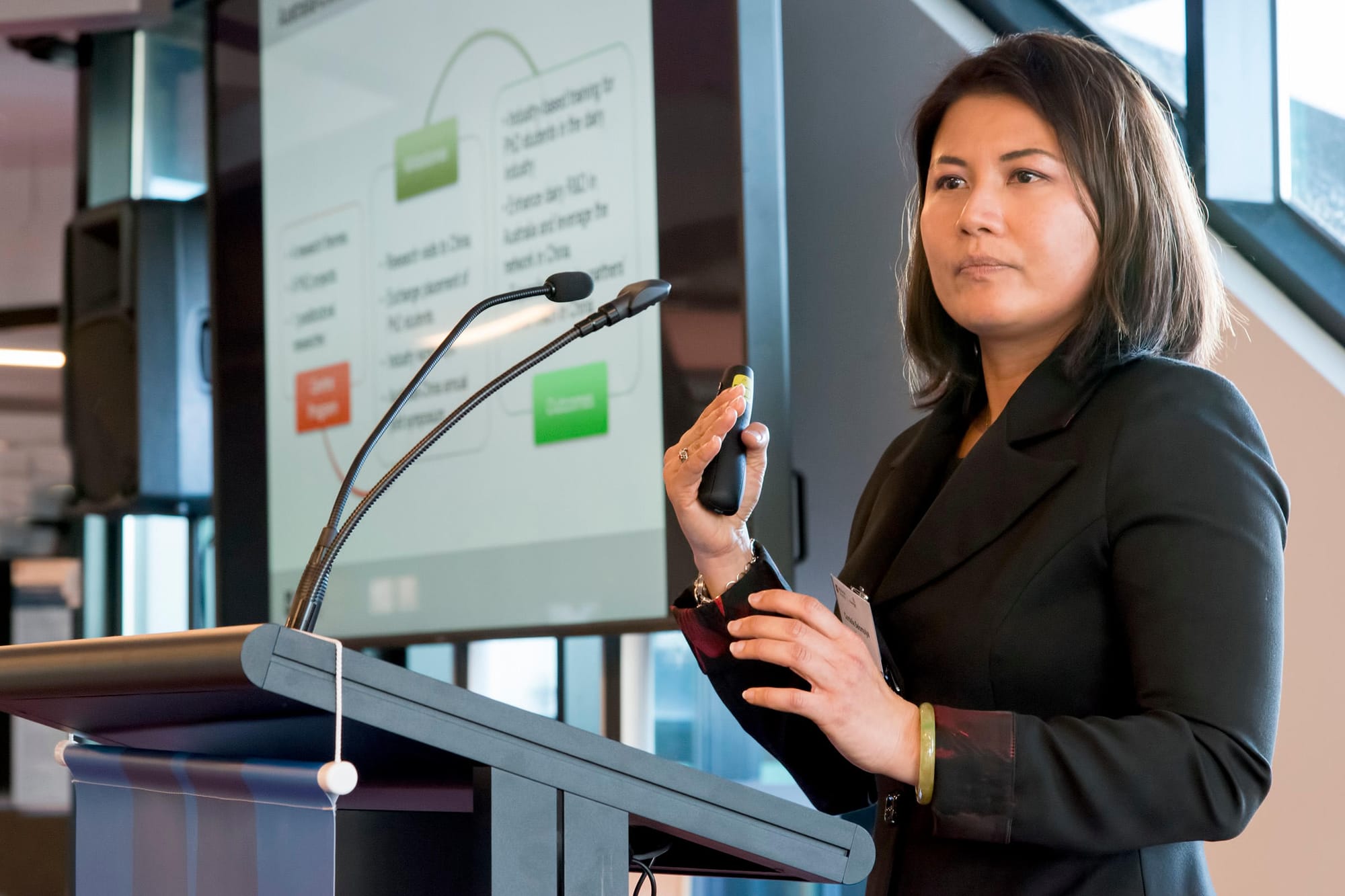
Four outstanding senior Monash researchers share their stories of struggle and success. The common denominators in this equation: Early inspiration, support from many mentors along the way, and the courage to search out and embrace new opportunities.
"I've been incredibly lucky"
Christina Mitchell, Academic Vice-President and Dean, Faculty of Medicine, Nursing and Health Sciences
I wanted to be an architect. My father, a general practitioner, convinced me I had to do medicine, and he was right. Then I wanted to be the world’s best doctor, a big hero like on the TV programs. I didn’t want to do a PhD -- I’d already done six years of medicine, five years of post-intern training, my specialty exams, and I was two-thirds of the way through my specialty training in haematology. I never wanted to sit another exam as long as I lived! But my first real mentor, Barry Firkin, said to me, “The basis for all medicine is evidence, and you can’t be a great physician unless you understand evidence. You really need to do some research.” So I agreed to do a year of research.

I had been looking after 50-60 patients a day, working 24-hour shifts three nights a week. So much drama and so little sleep! This was an entirely new world. If I got the experiment wrong, no one was going to die! I liked it so much that I stayed in and finished the PhD. Then my supervisor convinced me to go do a postdoc in the US. All my friends were doctors, making a great living and securing their future and there I was, an impoverished postdoc living in St Louis, purifying enzymes and cloning genes in a laboratory, far from the clinic.
Back in Australia, I got a job with my PhD supervisor, who was a great mentor, as an academic senior lecturer in a small suburban hospital. He was so confident I should keep doing research and I would be successful. I balked. “I won’t get a grant, I can’t do research, it’s all impossible!” He told me to try anyway. I did, one thing led to another, and here I am, 25 years later, still funded by grants. I’ve been incredibly lucky. I didn’t realise it at the time, but I had very good mentors. If you had spoken to me as the intern, I would have said, “I’ll end up as a good doctor and then I’m not going to do anything else.”
I used to worry that I wasn’t good enough, that I wouldn’t make it. It all seemed so daunting. One friend from medical school who was much cleverer than I was, but who never moved upwards in her career, asked me how I kept getting jobs. “I apply for them,” I answered. I didn’t always think I’d get them, but I applied for them. So just do it! Try different things, and don’t worry. It will all work out.
"You cannot overestimate the importance of good mentors"
Maria Garcia de la Banda, Professor, Data Science & AI
I adored my father (who was a scientist) and thought that being a scientist was the best thing ever. When I was 16 or so, he brought a computer home. In those days (early 80s) nobody had computers and I got very into it. In Spain, engineering was incredibly competitive – and there were no women. But a new sub-branch of engineering, informatics, had just begun and it was more than 30 per cent female, so I chose it. In my sixth year I was very lucky – I chose for my master’s thesis what I think is the best supervisor one could ever have. As soon as he had an opening for a PhD position, I left my full-time job at Siemens to work with him.

You cannot overestimate the importance of good mentors. Without my father, without my PhD supervisor, without my postdoc supervisor here at Monash when I started, I would not be where I am. Once you start your career, though, it is important to get out of the shadow of your supervisor. This can be very hard while working at the same place, so I would recommend travelling; moving to some other university. Or, if that is not possible, change your focus, and branch out. Whatever you do, make sure you plan ahead. Check out postdoctoral places, talk to students and staff in those places; this might be the most important research for your career.
Women often believe that if we do good research, our work will speak for itself. Unfortunately that just doesn’t work for many. You might have high impact papers published in fantastic places, but if you have never been invited to be on the right program committees, editorial boards or be a program chair, you will not be seen as highly regarded in your community. So make sure you leverage your networks, raise your hand, and actively become visible. Put yourself out there. Ask people to nominate you.
And remember, life is mostly luck. Sometimes you try your hardest and it doesn’t pay off, while other times you are simply at the right place at the right time. Such is life! I had a year-and-a-half in which every single paper I submitted was rejected. And then the next year everything I submitted was accepted. So don’t be too hard on yourself when you fail, and be ready to act if the opportunity comes. In the end, failure is what we all do; what we all need to learn. Ah! And just as you need not be too disappointed in your failures; you also need to celebrate your successes with gusto.
"Never underestimate your value and your worth"
Cordelia Selomulya - Professor, Chemical engineering and ARC Future Fellow
I didn’t grow up saying I would like to be a chemical engineer. I didn’t even know that profession existed. I wanted to be an environmental engineer, but that wasn’t available for international students at UNSW when I applied. In the third year, I did a summer research project with a young female senior lecturer. We published a paper, and she took me to a great conference in New Zealand. I thought, “It’s not so bad doing research, if you get to do fun things like this.”
In 1998, the year I started my PhD, there was a riot in Jakarta, my hometown. My parents were here for my graduation. On the one hand, we were happy because I was graduating, and at the top of my class, but on the other hand they were trying to get my older sister out of the country. For them education was a big priority but also a big sacrifice, because it was not cheap to send children overseas to university.

Hardly anyone will have a smooth sailing PhD. Either you have enough results, or you feel that this is so depressing you just want to quit. For me, in combination with all the things that were happening back home, the second year was tough. I was doing a very fundamental study of particle aggregation, and the engineer who was building a very specialised rig for me suddenly just disappeared. He took off to Antarctica on a research project without telling us, without finishing the rig. We had to change the project very quickly, and I had to build another rig.
I tell my PhD students that you have to be flexible, because things will not happen as you planned. You have to be able to navigate that. You have to be a bit open-minded about it and not too stressed.
As females we are often afraid to ask because we don’t feel that we are good enough. Most men don’t have that problem. I’ve sat through many recruitment and promotion processes, and seen male candidates who are successful -- before they even come they’re asking for all sorts of stuff. I didn’t ask for anything when I first came here. I was just so grateful to get the job! I wish I had been a better negotiator. Never underestimate your value and your worth.
Read more: International Day of Women and Girls in Science





